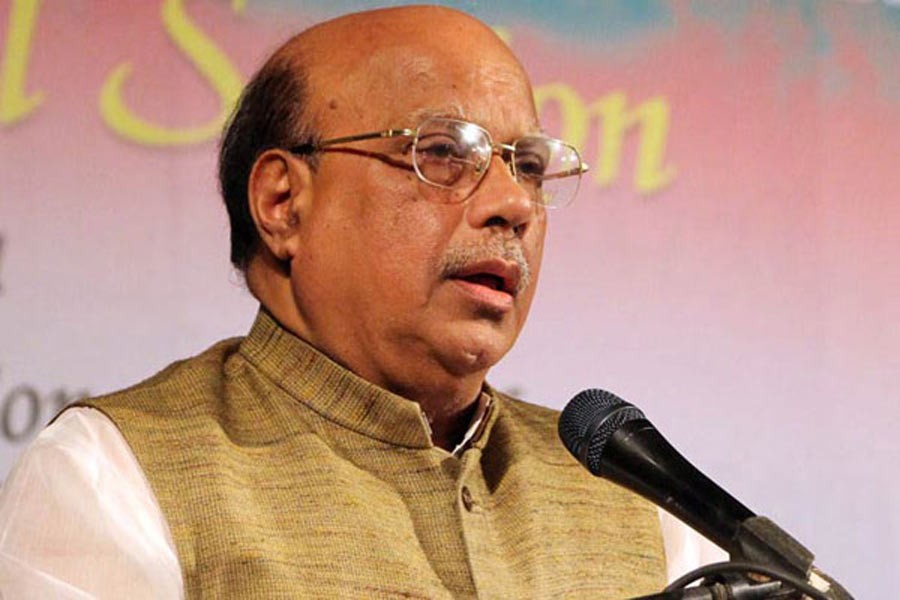The 'health development surcharge management policy' will be finalised once Prime Minister Sheikh Hasina returns home, Health Minister Mohammed Nasim has said.
Nasim made the announcement at a programme organised by the anti-tobacco organisation Progga and the Daily Samakal in the capital on Sunday, reports bdnews24.
The health minister said, "The health development surcharge management policy will be finalised through clearance by the Cabinet once the prime minister returns home from the US."
She attended the UN General Assembly there and is scheduled to return on Oct 2.
"There had been various obstacles to the control of tobacco, but we did not step back," Nasim said at the discussion at the Samakal office.
The health ministry initiated the two policies to manage activities to control tobacco in a coordinated way in 2015. The draft policies now await finalisation.
State Minister for Finance MA Mannan said he would throw his 'wholehearted support' behind the health development surcharge management policy at the Cabinet.
He said the surcharge would be spent on tobacco control.
Fazilatun Nasa Bappy, MP, demanded immediate passage of the two policies and urged Nasim and Mannan to take quick steps.
Anti-tobacco campaigners, senior journalists, officials of the health ministry and World Health Organization, and medical experts, among others, took part in the discussion organised in partnership with Campaign for Tobacco Free-Kids and Bloomberg Philanthropies.
Daily Samakal Managing Editor Abu Sayeed Khan presided over the programme moderated by the newspaper's Executive Editor Mustafiz Shafi.
Finance Minister Muhith earlier said that due to tobacco consumption, the government and the society as a whole incur additional health cost.
The government imposed a surcharge of 2.5 per cent on the income from sales of cigarette, bidi, zarda, gul and other tobacco items in the budget for the current fiscal year.
But anti-tobacco campaigner Progga was not happy about the decision and call for a higher surcharge to be slapped.
It said that in the past one year, the per capita income in Bangladesh increased by 9.27 per cent, and if inflation were considered, tobacco products would be cheaper to consumers.


